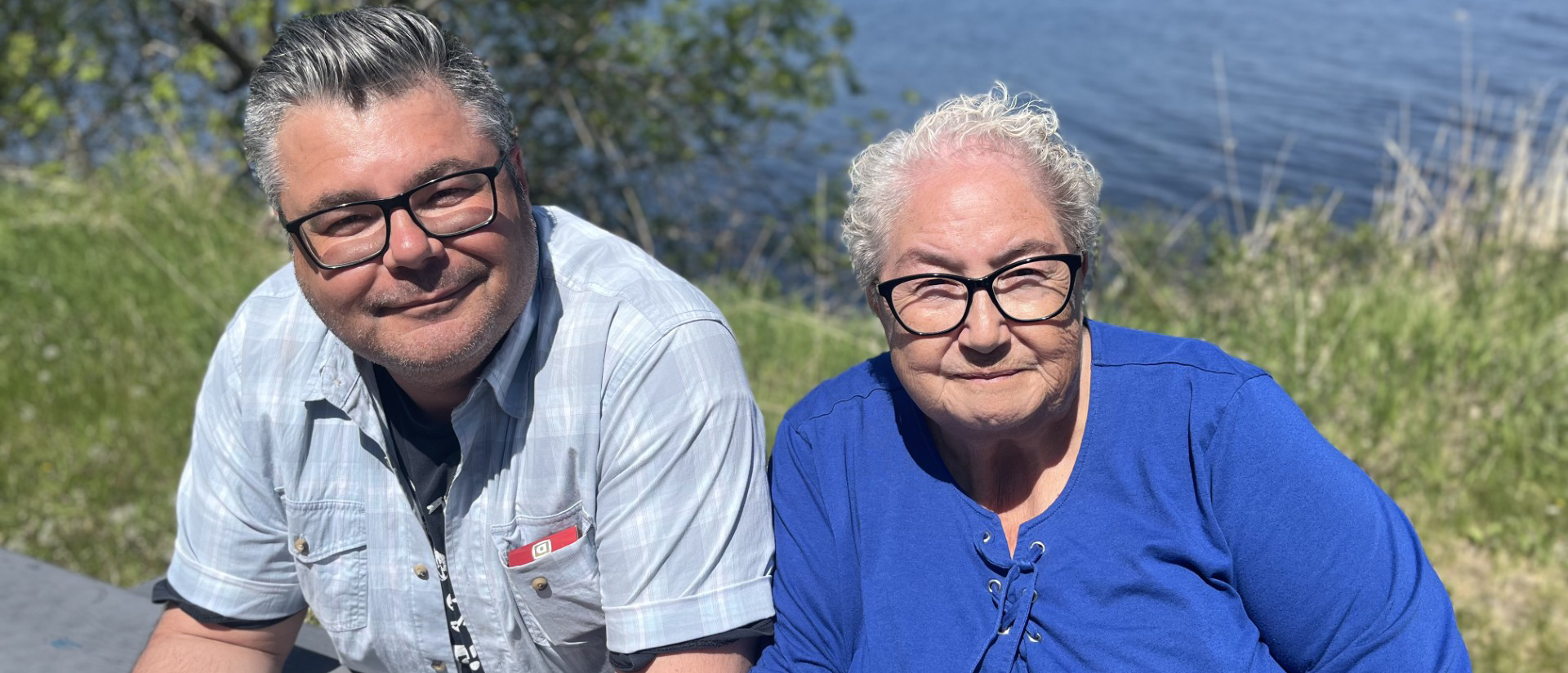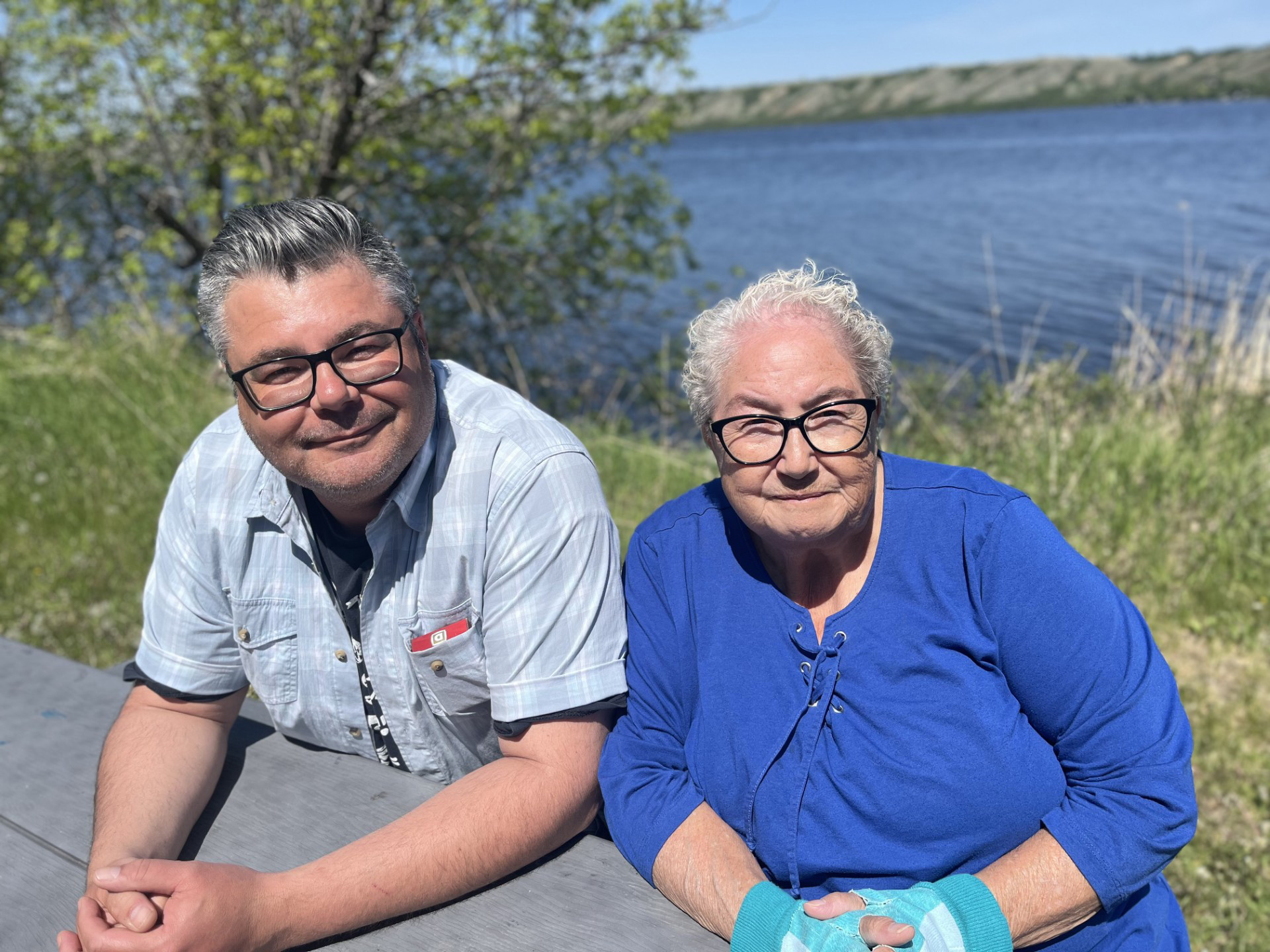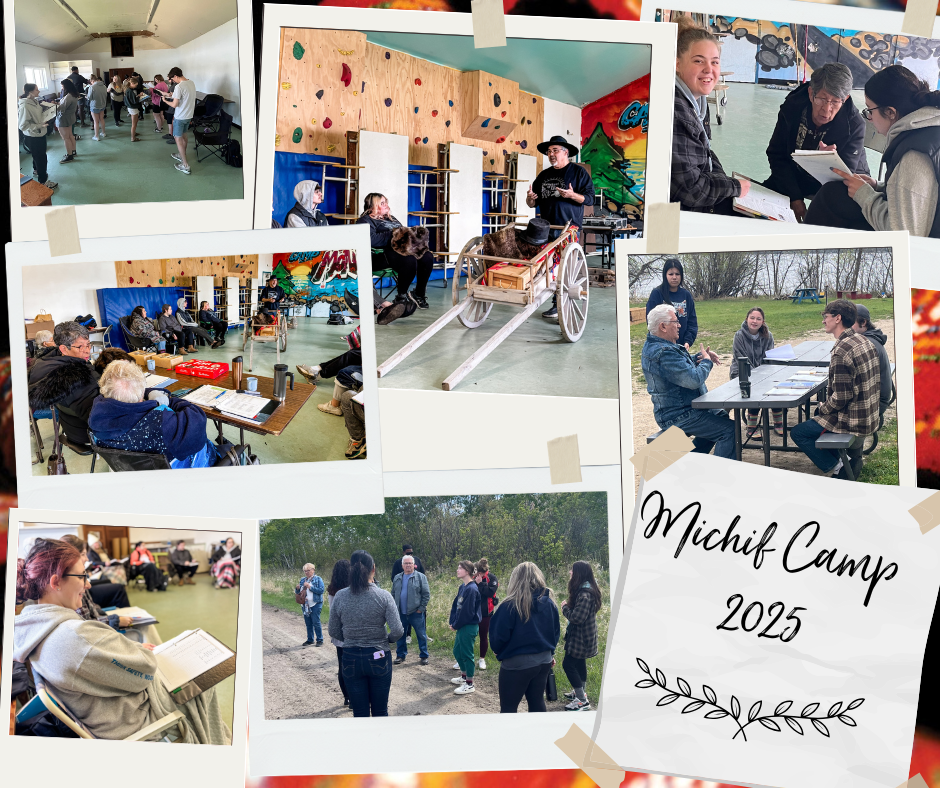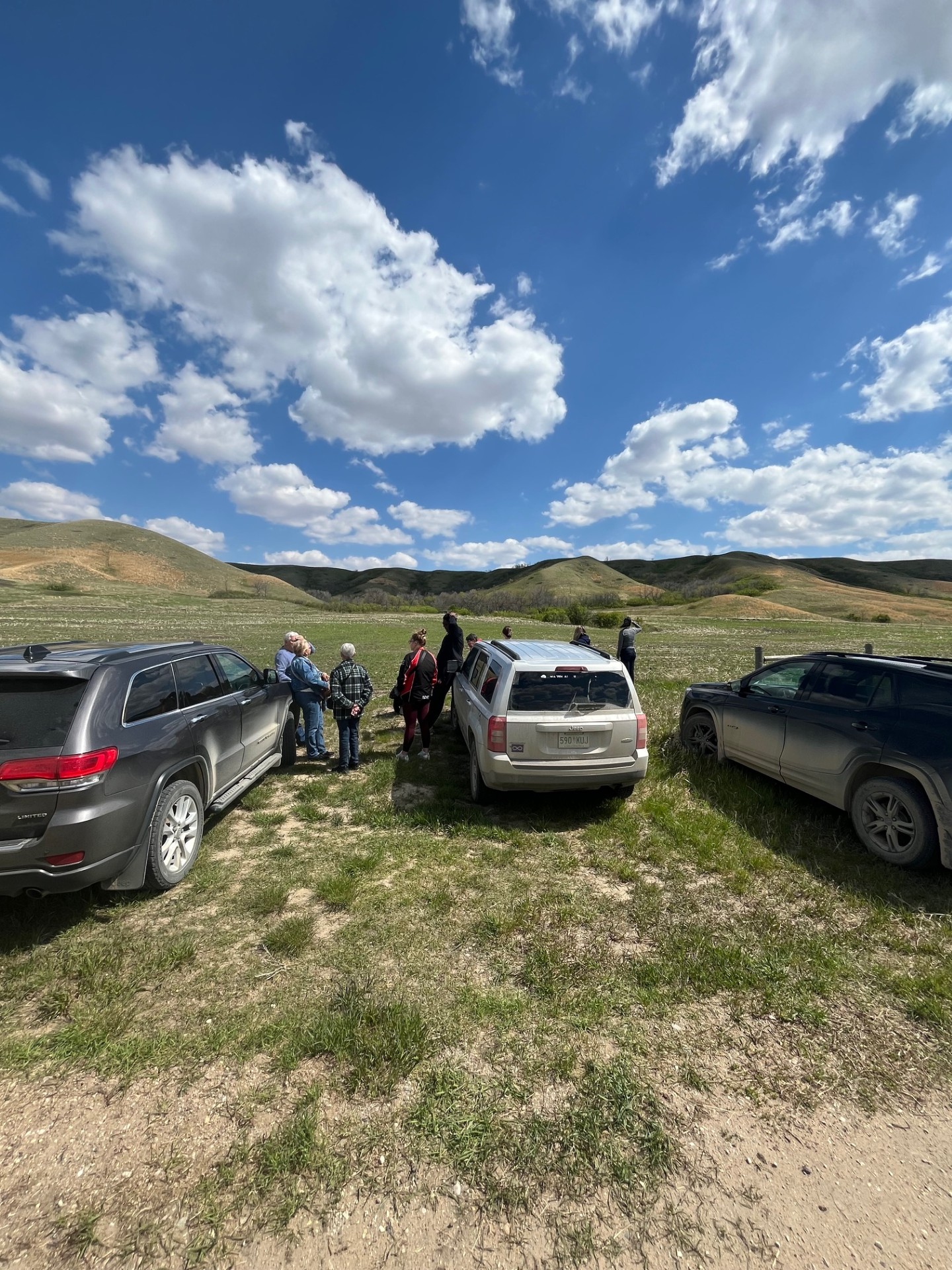
Russell Fayant on Reclaiming Métis Language and Identity
Russell Fayant, Métis educator and faculty member at SUNTEP Regina, has made it his life’s mission to reclaim his language and empower others to do the same. A recent recipient of the Lieutenant Governor’s Indigenous Scholars Award, Fayant speaks with candor and passion about the revitalization of Michif, a language he calls “the language of reconciliation.” In this special feature for National Indigenous History Month, he shares his personal journey and invites educators to join the work of cultural reclamation.
Uncovering Métis Identity Through Language and Culture Learning
Russell is Métis from the Qu’Appelle Valley in southern Saskatchewan, where his family settled back in the 1820s as Michif buffalo hunters after leaving Manitoba to escape colonization. Most of the Michif speakers in his family are elders, and he is the first generation that did not speak Michif, so he had to work to reclaim the language for himself.
"My siblings and I were put in speech therapy in school for speaking English with Michif accents," he recalls. His mother, fearing the language would hold them back, chose not to pass it on. "They thought they were protecting us."
Today, Fayant is part of a growing resurgence to reclaim what was once hidden. He helps students reconnect with their heritage by learning Michif as second-generation speakers.
“Students often uncover relatives who have been quietly holding onto the language,” says Fayant. “They make them feel proud, and that pride opens cultural layers that have been buried for generations.”
“Michif is the language of reconciliation because it incorporates the diverse worldviews of settler society as well as the Indigenous community in equal parts.” - Russell Fayant
Michif - The Language of Reconciliation
Fayant describes Michif as a “language of reconciliation” because it represents an equal blending of Indigenous and settler worldviews. Early relationships between First Nations peoples and settlers were rooted in knowledge sharing, cooperation, and even cross-cultural adoption. The Michif language is a combination of French nouns and Cree and Saulteaux verbs. It embodies that same spirit of balance and interdependence.
“Michif is the language of reconciliation because it incorporates the diverse worldviews of settler society as well as the Indigenous community in equal parts,” says Fayant.
The Role of Institutions in Language Revitalization and Cultural Reclamation
When asked about the role of institutions in supporting language revitalization and cultural reclamation, Russell points out that Universities and Indigenous organizations each play a vital role in language revitalization.
When the idea for the Michif Camp was first proposed, Russell Fayant recalls that both the Faculty of Education and the University of Regina offered strong support. They provided accreditation while entrusting the organizers to lead the development of a culturally grounded curriculum. “Just as it should be,” he notes.
He adds that Indigenous institutions like the Gabriel Dumont Institute and SUNTEP play a crucial role in bridging traditional knowledge with academic structures. This collaboration enables students, many of whom come from families where few Michif speakers remain, to reclaim their language and identity.
Michif Camp: A Treasured Program at SUNTEP Regina
One of the most treasured programs offered by SUNTEP Regina is the Michif Camp, co-developed by Russell Fayant and Irma Klyne. This unique initiative brings together the core pillars of land-based learning, community building, and storytelling in a powerful, immersive format. The camp is a six-credit, three-week experience that takes students into the heart of the Qu’Appelle Valley, home to many Michif speakers, where they learn directly from Elders and Knowledge Keepers.

Over the course of the camp, students participate in five themed modules: visiting, food, working, celebrating, and plants and medicines. Each theme is grounded in traditional Métis knowledge and everyday language use, allowing students to engage with Michif not only as a language, but as a lived cultural practice.

“I didn’t grow up around the language, but being at camp, learning from the old ones, hearing their stories, going out on the land, just made everything click. We visited road allowance communities to find wild rose, and the old ones shared how it helps with colds. You can make jams, syrups, even medicine from the petals. They showed us how to harvest it, how to speak about it in Michif. That hands-on learning, and the way they encouraged us to just be present, really helped me feel connected to the language in a way I never expected. It’s something I know I’ll bring into my own classroom one day”, says Jordyn Lovas, second-year SUNTEP student.

“My great-grandma went to residential school and lost a lot of her culture. She became ashamed of it, and as a result, my grandpa didn’t grow up connected to his Métis identity. That’s why it’s been meaningful for me to learn so much during my first year at SUNTEP and at Michif camp, and to be able to share it with him. Learning on the land, visiting old road allowance homes, cooking bannock, building a Red River cart, helped me reconnect not just with the language, but with my family’s history. Now I get to pass that knowledge back to my grandpa, and that’s been incredibly powerful. This camp reminded me that we learn best on the land, just like our ancestors did. That’s something I want to bring into my own classroom one day,” says Rylee Boutin, first-year SUNTEP student.

The SUNTEP Approach: High Standards, Deep Support
Since 1980, SUNTEP has graduated over 1,500 students—many of whom have gone on to become classroom educators, administrators, superintendents, and cultural advocates. These alumni ensure that Métis stories are not just included in school curricula but that they are lived, celebrated, and passed on. Highly accomplished and deeply respected across school divisions, SUNTEP graduates are known for their excellence.
What makes the SUNTEP model so effective?
“As Indigenous people, we have to be better to be seen as equal. That’s why we combine high expectations with strong support, small class sizes, close relationships, and proactive outreach when students are struggling or absent. We never hesitate to check in and offer help.” - Russell Fayant
Fayant attributes SUNTEP’s success to a powerful mix of high expectations, wraparound support, and a strong sense of community kinship. “Our students form a cohort for all four years,” he explains. “They become like family.”
This approach, which Fayant describes as “kitchen table pedagogy,” creates an environment where students feel safe, seen, and supported. Combined with rigorous academic standards, it’s a formula that consistently produces some of the best-prepared teachers in the province.
“We get calls from superintendents and principals asking, ‘What are you doing over there? Why are your teachers so well prepared?’” Fayant recalls.
“As Indigenous people, we have to be better to be seen as equal. That’s why we combine high expectations with strong support, small class sizes, close relationships, and proactive outreach when students are struggling or absent. We never hesitate to check in and offer help,” he says.
A Call to Educators: Teach the Living Legacy of the Métis
Russell Fayant has a message for educators: “Don’t forget about the Métis.”
Despite being one of Canada’s three constitutionally recognized Indigenous groups, the Métis remain the least understood. “Most Canadians can locate Inuit homelands,” Fayant points out, “but few can identify traditional Métis territory.”
Too often, he says, Métis identity is reduced to: the four-month Northwest Resistance and the story of Louis Riel. “Our people have a 300-year history of innovation, resilience, and leadership.”
Yet history alone is not enough. “Don’t teach us only in the past tense,” Fayant urges. Métis people are living, evolving and creating today: tattoo artists reviving traditional designs, musicians performing in Michif, and beadwork artists blending cultural aesthetics with contemporary styles.
From the invention of the all-wooden Red River cart to the buffalo hunt, a communal event involving men, women and children, to the creation of Manitoba, the only province in Canadian history established under Indigenous leadership, SUNTEP’s curriculum helps reclaim and teach this legacy in its full richness.
“Our history is fascinating and essential. And we are still here changing, evolving, and contributing to what Canada is today.”
About SUNTEP
For over 40 years, SUNTEP has offered a pre-service teacher education program—a four-year Bachelor of Education degree delivered by the Gabriel Dumont Institute (GDI), in partnership with the Ministry of Advanced Education, the University of Regina.
SUNTEP is grounded in foundational education theories that embrace pedagogy of relations, culturally responsive education, diversity and inclusivity. Métis Ways of Knowing and Being are fundamental and infused in SUNTEP’s pre-service training program. An emphasis on cross-cultural education, Métis and First Nation people’s history and culture, the Michif language and land-based learning are instilled throughout the program. The Saskatchewan curriculum and societal issues explore social justice, anti-oppressive and anti-racist education lenses which extend to the schools and classroom experience.
Learn more about SUNTEP and apply online: https://www.uregina.ca/academics/programs/education/index.html